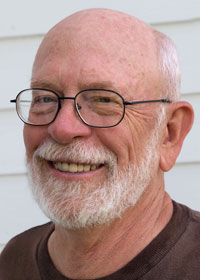|
 |
| Roy Christman is a retired political science professor and has a farm in Pennsylvania. |
|
|
Poor Iowa. It wasn't diverse enough. Caucus participation was low. It took too long to issue the results. There were too many corn fields.
It is true that Iowa demographics are not representative of the United States as a whole. Latinos only make up four percent of the population; African Americans about three percent. Iowa voters are older, whiter and more Protestant than the U.S. population. The people Iowa voters do resemble are the the voters of Indiana, Kansas, Wisconsin, Minnesota, North Dakota, South Dakota; i.e., just about any state in "flyover country." Since Democratic presidential candidates have not been doing especially well in the Midwest, it just might be valid for Democrats to use Iowa as a test case.
We must remember that presidential races are not won by popular vote, they are won state by state. Since Iowa is one of the few "swing states" remaining, its importance should be clear.
South Carolina is sometimes pitched as an alternative starting point for the Democratic presidential selection process. The African American population is about 27 percent, and a huge majority of blacks in South Carolina are Democrats, an important component of the Democratic coalition. On the other hand, when is the last time South Carolina voted Democratic in a presidential race? (It was 44 years ago when Jimmy Carter ran.)
While it is true that caucus participation is low compared to many presidential primaries, it is still impressive. In fact, the turnout for the Iowa caucus was comparable to the participation rate of Pennsylvania voters in off-year general elections, and Pennsylvania voters aren't required to hang around for hours in drafty high school gyms or stuffy church basements.
Caucus participation is real participation, far more meaningful than sitting at your kitchen table filling out a mail-in ballot. You actually talk to your neighbors, discuss politics in a civil way, and form coalitions to elect delegates on the spot. It's positively Athenian.
|
The caucus system also tends to tame the nastiness of campaigning. Elizabeth Warren could not be too critical of Bernie Sanders or Joe Biden, since her followers might want to form coalitions with their followers at the local caucus. The caucuses are communal events involving friends and neighbors.
The complaints about the length of time it took to tabulate the results in 2020 were understandable, but that was the result of faulty computer programming, training failures, and opposition sabotage. It is also good to remember that Republican and Democratic presidential nomination systems have not been developed for CNN or Fox commentators, but as a means for the parties to select their candidates.
Any electoral system will advantage certain candidates and hurt others. Andrew Yang, Amy Kobuchar, and Pete Buttigieg (my candidates) did not do well this year, but the Iowa caucus at least gave them a chance. State conventions, used in the past, are subject to insider influence. A nationwide primary would select the best known or the wealthiest candidate.
In spite of all the arguments I can muster for caucuses, I believe we have seen the last of them, at least as a method for selecting Presidential candidates. The demand for instant results on election night, the expense for the state party, and the increasing number of states using mail-in ballots all militate against the caucus system. The coronavirus has accustomed us to socializing, purchasing, filling out census forms, and dealing with governments on-line. Most people won't mourn the passing of a system in which groups of voters gather to discuss and argue about their political preferences with civility and neighborliness. I will.
~ Roy Christman
|
